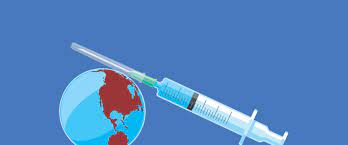Vaccination has long been an essential pillar of public health. From eradicating smallpox to significantly reducing the spread of polio and measles, vaccines have revolutionized disease prevention and public safety. By immunizing individuals against infectious diseases, vaccination helps protect entire communities, particularly the most vulnerable. But how exactly do vaccines benefit public health, and why are they so important? Let’s explore.
What Is Vaccination and Why Does It Matter?
Vaccination involves introducing a weakened or inactive form of a pathogen into the body to stimulate the immune system to produce antibodies. This creates immunity without causing the disease, equipping the body to fight it off in the future.
For public health, vaccines are not just about protecting individuals. They also allow for herd immunity, whereby a large portion of the population becomes immune, limiting the spread of diseases and protecting those who cannot be vaccinated due to medical conditions or age.
The Role of Vaccination in Public Health
1. Disease Prevention
Vaccines prevent millions of cases of infectious diseases annually, keeping illnesses like measles, rubella, and influenza under control. Without vaccination, these diseases can spread rapidly, overwhelming healthcare systems and leading to considerable loss of life.
- Example: The global measles vaccination program reduced deaths by 73% between 2000 and 2018.
2. Protecting the Most Vulnerable
Children, the elderly, and immunocompromised individuals cannot always defend themselves against infections. Vaccination programs ensure that diseases do not reach these vulnerable groups.
- Example: Widespread flu vaccinations protect seniors and immunocompromised people, significantly reducing flu-related deaths in high-risk groups.
3. Cost-Effectiveness
Vaccination indirectly saves billions of dollars in healthcare costs every year. Preventing diseases is far less expensive than treating outbreaks, hospitalizations, and complications associated with infections.
- Example: The CDC estimates that childhood immunizations save over $40 billion in direct and societal healthcare costs in the U.S. annually.
4. Eradication of Diseases
Vaccination campaigns have eliminated or nearly eradicated several deadly diseases. For example, smallpox was officially eradicated in 1980, marking a monumental achievement in global health.
Efforts are ongoing to eliminate polio and measles worldwide through large-scale immunization programs.
Challenges to Global Vaccination Efforts
Despite their critical benefits, vaccination faces challenges:
- Misinformation and Vaccine Hesitancy
Misinformation online and a lack of understanding about vaccine safety contribute to declining vaccination rates in certain areas. Public health campaigns are critical to combating this trend.
- Access in Low-Income Regions
Many low-income countries struggle to access vaccines due to logistical and financial barriers. Global health organizations like the WHO and Gavi, the Vaccine Alliance, play a vital role in improving vaccine availability in these areas.
How Healthcare Providers, Public Officials, and Communities Can Support Vaccination
- Healthcare Providers can encourage patients to follow vaccination schedules, provide accurate information, and address vaccine hesitancy with empathy.
- Public Health Officials should implement awareness campaigns, improve vaccine accessibility, and make data-driven decisions to identify areas of need.
- Community Leaders can build trust in vaccines by sharing their benefits and addressing cultural or community-specific concerns.
Vaccination and a Healthier Future
Equipping our societies with strong immunization infrastructures is essential to building a healthier, more resilient global community. For individuals, staying up to date on vaccinations protects yourself and those around you. For nations, strengthening vaccination programs contributes to a prosperous and healthier society.
Take Action
If you haven’t checked your vaccination schedule recently, now is the time. Speak to your healthcare provider to ensure you and your family are up to date on essential vaccines.
Vaccination is a triumph of science and humanity. By working together to promote vaccines, we protect lives, strengthen public health, and pave the way for a future free of preventable diseases.
Unfortunately, I cannot generate images as part of my functionality. However, you can use platforms like Canva or Shutterstock to create professional visuals for your article. Options might include illustrations of a vaccination clinic, infographics showing disease prevention statistics, or images of smiling healthcare workers administering vaccines.








